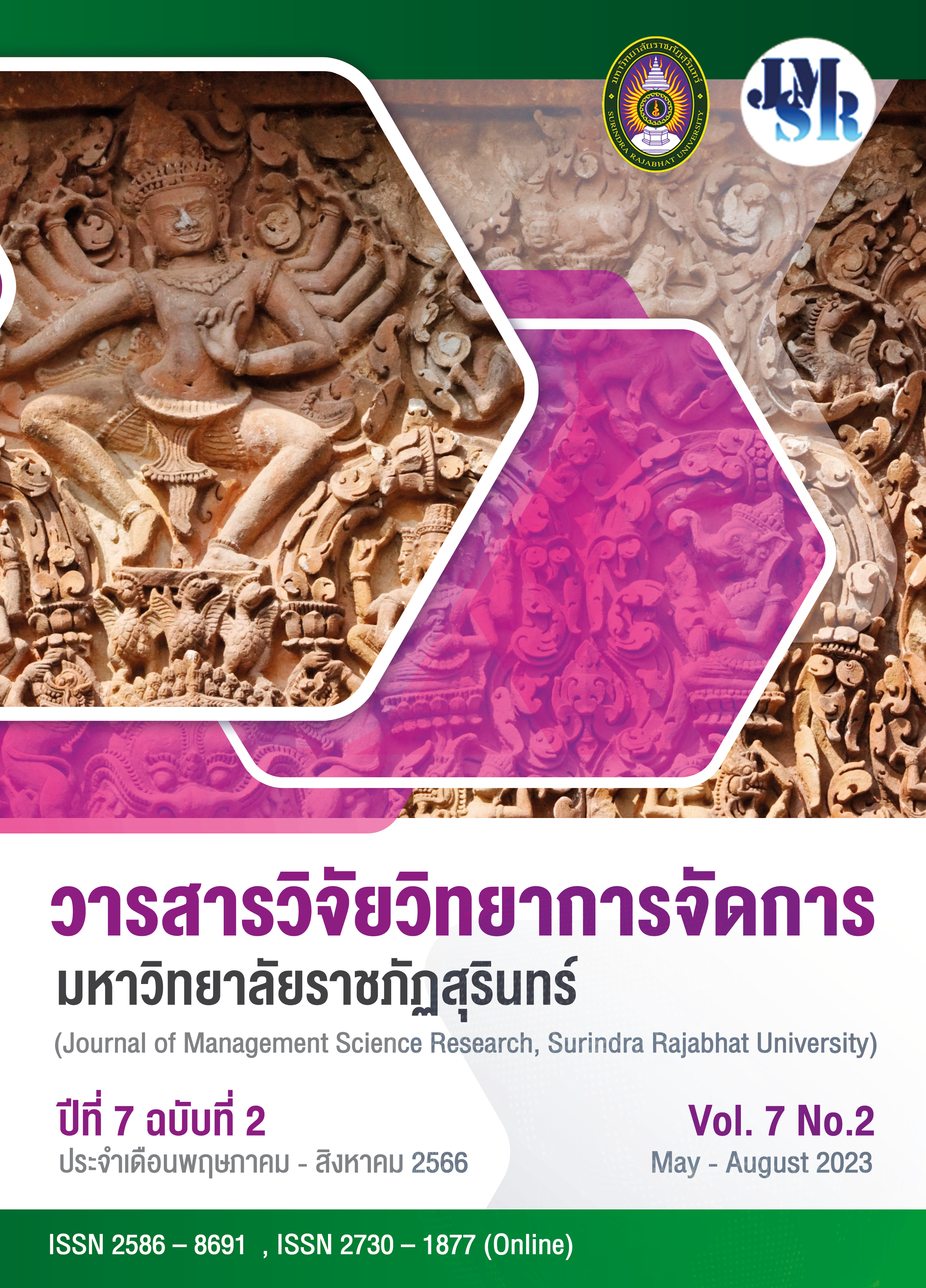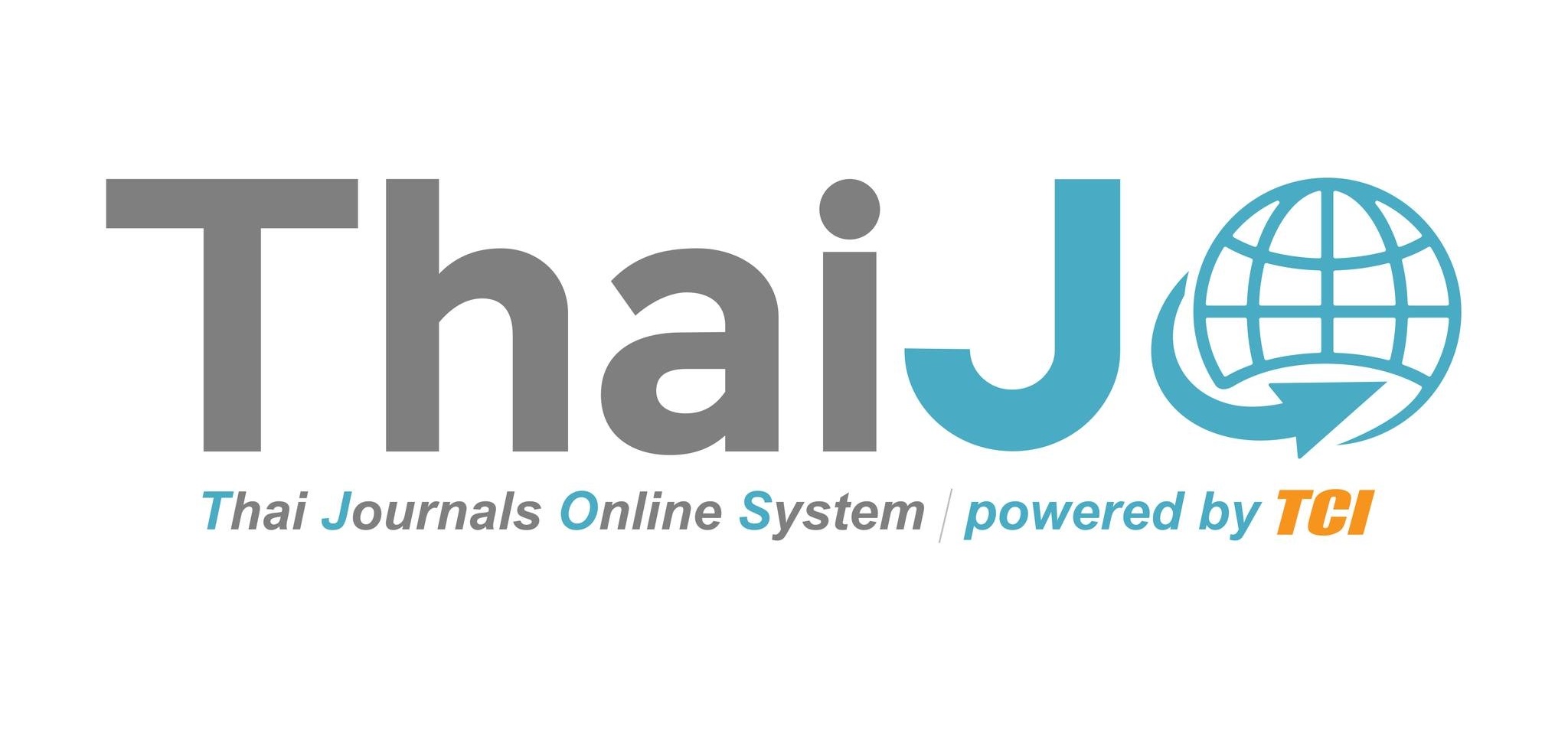The Essential Competencies of A Professional Accountant in the 21stCentury
Keywords:
Competence, Professional Accountant, The 21st CenturyAbstract
This paper aimed to study with essential competencies for accounting professionals in the 21st century are to explore the knowledge, skills, and attributes necessary for accountants in this era. This aims to identify what aspects comprise these competencies in each dimension. The findings from this study can be applied to accounting professionals in adapting to the changing environment of the present, based on relevant theoretical concepts, related research works, and data analysis obtained from the study. The aspect of knowledge & essential specialization such as specialization of accounting standards & accounting audit standards, preparation of financial reporting based on financial reporting standards, financial analysis, accounting digital software, accounting information system usage, knowledge of taxation and relevant commercial and trade laws, Personal Data Protection Act. (PDP) also, Regarding the necessary foundational skills, such as communication skills, language usage skills, digital & numerical and computational skills, critical thinking skills, problem resolution skill, team work, and digital technology literacy. As for the essential attributes, they consist of leadership qualities, ethics & social responsibility, good governance & legal compliance, and professional ethics in accounting. The new knowledge gained from this study can be applied by both public and private organizations in managing personnel involved in accounting roles within the organization. This applies to various aspects such as recruitment and selection processes, human resource development planning to enhance potential and effectiveness, performance evaluation, and motivating compensation systems for organizational personnel. These efforts aim to inspire and encourage employees to contribute to the organization's success in achieving its vision and established goals.
References
เกรียงไกร บุญเลิศอุทัย และดนุชา คุณพนิชกิจ, (2555). IES2 ต่อการพัฒนาหลักสูตรปริญญาตรีทางการบัญชี. จุฬาลงกรณ์ธุรกิจปริทัศน์, 34(134) : 162
ณัชชา คล้ายสุบรรณ และกุสุมา ดำพิทักษ์. (2562). คุณสมบัติของนักบัญชีที่พึงประสงค์ของสถานประกอบการในยุคดิจิทัล. วารสารมหาวิทยาลัยอิสเทิร์นเอเชีย,11(1), 1-14.
เด่นพงษ์ สุดภักดี. (2557). แนวทางการพัฒนาทักษะการเรียนรู้ดิจิทัลเนทีฟ, มหาวิทยาลัยศิลปากร, 10(2), 12.
ธีระพล เจริญสุข. (2564). การพัฒนาสมรรถนะของบุคลากรกรมสรรพสามิตในเขตกรุงเทพมหานคร.การค้นคว้าอิสระบริหารธุรกิจมหาบัณฑิต.มหาวิทยาลัยราชภัฎพระนครศรีอยุธยา.
นิลรัตน์ นวกิจไพฑูรย์. (2555). ประเภทของสมรรถนะ. [ออนไลน์]. ค้นเมื่อ 19 พฤษภาคม 2566, จาก : http://www.gotoknow.org/posts/501771.
นุจรี อร่ามพันธ์. (2561).ทักษะทางวิชาชีพที่จำเป็นสำหรับนักบัญชีองค์กรรัฐวิสาหกิจในศตวรรษที่ 21 : การไฟฟ้าส่วนภูมิภาค เขต 1 (ภาคกลาง). การค้นคว้าอิสระบริหารธุรกิจบัณฑิต. มหาวิทยาลัยเทคโนโลยีราชมงคลธัญบุรี.
นันทวรรณ บุญช่วย (2563). ยุคพลิกผันทางเทคโนโลยีกับการพัฒนานักบัญชีนวัตกร. วารสารบริหารธุรกิจและสังคมศาสตร์. มหาวิทยาลัยรามคําแหง, 3(1), 15-26.
ประสุตา นาดี, ธุวพร โคนพันธ์, กมลลักษณ์ มาตราช, ทัศนัย นาทัน, ตวัน ทัศนบรรลือ, ปานชีวา กุลีสูงเนิน, ศุภาพิชญ์ ตรงวัฒนาวุฒิ, บุษยมาส เทียนกระจ่าง, พรพิมล หว่างพัฒน์, และ ศุภกัญญา ภูทองกิ่ง.(2564). สมรรถนะของนักบัญชีในยุคดิจิทัล: ทักษะการปรับตัวในโลกที่เปลี่ยนแปลง.วารสารศิลปศาสตร์และการจัดการ มหาวิทยาลัยเกษตรศาสตร์, 8(2), 3-18.
พิชชาพร ธรรมรัตน์, สุวิมล ติรกานันท์และกมลทิพย์ ศรีหาเศษ. (2564). การศึกษาองค์ประกอบสมรรถนะนักวิชาชีพบัญชียุคประชาคมเศรษฐกิจอาเซียนในโรงงานอุตสาหกรรมจังหวัดปทุมธานี. วารสารการวัดผลการศึกษา, 38 (103),14 - 23.
รุ่งระวี มังสิงห์ และชุมพล รอดแจ่ม. (2564). สมรรถนะของนักบัญชีที่พึงประสงค์ในยุคดิจิทัลตามมาตรฐานการศึกษาระหว่างประเทศสำหรับผู้ประกอบวิชาชีพบัญชี. วารสารนวัตกรรมและการจัดการ มหาวิทยาลัยราชภัฏสวนสุนันทา. 6(1), 100-119.
วริยา ปานปรุง, ทิวัตถ์ มณีโชติ, ชัชสรัล รอดยิ้ม และนัฐพงศ์ ส่งเนียม. (2563). การพัฒนารูปแบบโครงสร้างความสัมพันธ์ระหว่างการจัดการความรู้และทักษะทางวิชาชีพบัญชีที่ส่งผลต่อสมรรถนะของนักบัญชีในยุคเศรษฐกิจดิจิทัล. วารสารวิจัยมหาวิทยาลัยเทคโนโลยีราชมงคลศรีวิชัย, 12(1),22-35.
วิชญะ น้อยมาลา. (2564). ทักษะจำเป็นของการทำงานในศตวรรษที่ 21. วารสารวิชาการรัตนบุศย์, 3(1), 141.
แววตา เตชาทวีวรรณ. (2559). การรู้สารสนเทศสาหรับการเรียบเรียงโครงงาน.(พิมพ์ครั้งที่ 2). กรุงเทพฯ : ภาควิชาบรรณารักษศาสตร์และสารสนเทศศาสตร์คณะมนุษยศาสตร์มหาวิทยาลัยศรีนครินทรวิโรฒ.
สภาวิชาชีพบัญชี ในพระบรมราชูปถัมภ์. (2559). มาตรฐานการศึกษาระหว่างประเทศสำหรับผู้ประกอบวิชาชีพบัญชี (ฉบับปรับปรุง Volume 2015). ค้นเมื่อ 10 กันยายน 2565, จาก http://www.fap.or.th/มาตรฐานวิชาชีพบัญชี/มาตรฐานการศึกษาและเทคโนโลยี.html.
สภาวิชาชีพบัญชี ในพระบรมราชูปถัมภ์. (2561). ข้อบังคับสภาวิชาชีพบัญชี ว่าด้วยจรรยาบรรณของผู้ประกอบวิชาชีพบัญชี. [ออนไลน์]. ค้นเมื่อ 29 เมษายน 2566, จาก : http://www.tfac.or.th/Article/Deltail/66980.
สรัชนุช บุญวุฒิ และไพฑูรย์ อินต๊ะขัน. (2559). การศึกษาองค์ประกอบคุณลักษณะของนักบัญชียุคใหม่ ภายใต้ประชาคมเศรษฐกิจอาเซียน, วารสารวิทยาการจัดการสมัยใหม่, 9(1), 167-177.
สำนักงานพัฒนาวิทยาศาสตร์และเทคโนโลยีแห่งชาติ. (2559). การรู้ดิจิทัล (Digital Literacy) [ออนไลน์]. ค้นเมื่อ 20 กันยายน 2565, จาก : https://www.nstda.or.th/th/nstda-knowledge/ 142-nowledges/2632.
อัญชลี ชัยศรี. (2563). การบริหารทรัพยากรมนุษย์บนพื้นฐานสมรรถนะ. วารสารวิชาการ มหาจุฬาลงกรณ์ราชวิทยาลัย บุรีรัมย์, 5(2), 54-65.
อัฏฐวัณณ์ จันทสุทโธ. (2564). การประเมินความต้องการจำเป็นของทักษะทางวิชาชีพของนักบัญชีในประเทศไทย. วารสารวิจัยมหาวิทยาลัยธนบุรี. 13(3) : 52-63.
Barac, K..(2009). South African training offers 's perception of the knowledge and skills requirements of entry-level trainee accountants. University of South Africa.
Boyatzis, R. (1982). The Competent Manager: A Model for Effective Performance. NewYork : Wiley Inter-science.
Mc Clelland, D. (1973). Testing for Competency Rather than for intelligence. American Psychologist. 28(1). 1-14.
Palmer, K. N., Ziegenfuss, D. and Prinsker, R. (2004). Intermotional Knowledge, skill, and abilities of auditor/accountant Evidence from recent competency studies. Old Dominion University.
Thipwiwatpotjana, S. and Bootnoi, N. (2019). The impact of accounting ethics on ethical behaviors and decision making of accounting firm executives in Thailand. MFU connexion, 8(2), 180-195.







